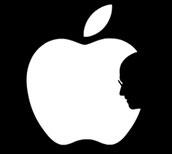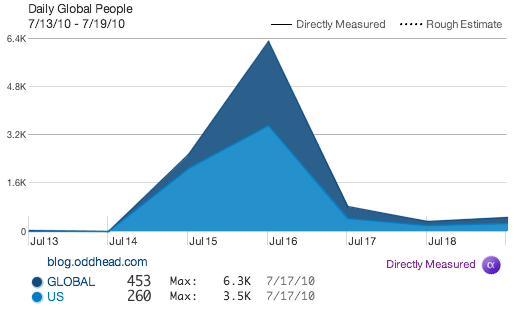——– Original Message ——–
Subject: last Yodle (and last corny Yodle joke)
Date: Wed, 25 Apr 2012 16:44:31 -0400
From: David Pennock
After 8 wonderful years (almost 10 if you include Overture), it is with
very mixed emotions that I leave Yahoo!. My last day is tomorrow,
Thursday April 2526. You can reach me in plenty of ways and I hope you do:
[my email address]
+1-732-XXX-XXXX
Y!IM pennockd | facebook pennockd | twitter pennockd | linkedin
http://dpennock.com | http://blog.oddhead.com
I’ve grown to love this company (purple blood, yada yada) and one of the
deep ironies is that I have a feeling Scott Thompson may actually know
what he is doing and that maybe just maybe Yahoo!’s return to revenue
growth and good public perception will finally come (note I didn’t say
return to profitability — a steady $1 billion in cashmoney profit in
our pocket every year is very far from shabby). I plan to hold on to
some of my stock.
In the early 2000s Google was an amazing Bem+Wom story yet almost no one
(me included) had a clue how they would make money. In 2002, Gary Flake
introduced me to Overture, a company already making hundreds of millions
on search, and suddenly it was clear. I joined Gary in what became
Overture Research and later, under Usama Fayyad’s protective wing, the
inception of “Yahoo! Research Labs”. When Gary left, we hired Prabhakar
and Ron. The rest is history. Andrei, Andrew, Raghu, Ravi, Ricardo,
Preston, Duncan. An absolutely amazing place that was my pleasure to
watch grow and mature. I still remember the excitement of our first
offsite at Half Moon Bay to map out the future of the place.* I remember
a fateful week when Preston, Duncan, and David Reiley simultaneously
gave up their tenure to stay at Yahoo!.
From the beginning Prabhakar saw the importance of including social
science research in the mix for online media. In my little corner, where
we mixed computer science and economics (“algorithmic economics” we
called it), I believe we had enormous effect both internally and
externally. In 2007, Jeff MacKie-Mason, one of our Big Thinker lecturers
and now Dean of the School of Information at the University of Michigan,
wrote (ok, informally to me in email) that our group was “the most
exciting and successful group I’ve seen crossing the CS/Econ boundary”.
If imitation is the sincerest form of flattery, I believe we had a
significant positive impact on the growth in hiring in the social
sciences and in algorithmic economics at both Google and Microsoft. In
our group alone, we published more than 70 papers including at least two
award winners (Arpita just this year). We literally wrote the book
(chapters) on sponsored search and prediction markets. We co-founded the
Ad Auctions Workshop and NYCE Day. People who left often did
fantastically well, including Yiling Chen to Harvard, Mohammad Mahdian
to Google, and Dan Reeves to found his own successful startup Beeminder.
We filed dozens of patents (take that fb!). Former intern Nicolas
Lambert who is now a Stanford professor once told me he hoped to one day
say “it all started at Yahoo!”. I just left a Ph.D. student’s defense
whose three (!) weeks at Yahoo! were good for two chapters in his
thesis. We’ve had academic visitors leave after a week here and follow
up that they wanted to apply for a job — the environment was that great.
Inside Yahoo!, we worked on sponsored search (“squashing” and so much
more by the incomparable Sebastien Lahaie, who we recently discovered is
the central hub of research in New York), display ads, and UGC among
many topics. My passion has been in prediction (markets), and some of my
best memories have been trying to play product manager for a day (or a
couple months) for Predictalot and The Signal. Often it felt more like
operating a startup but with incredible advantages in resources, people,
and of course access to that monster traffic firehose. This was Yahoo!
at it’s best — marshaling talent from all over the globe in many
divisions and specialties to produce a product that no one had ever seen
before, and that no one including us even knew would work. One of the
saddest parts of departing now is leaving The Signal behind, an
incredible effort and in many ways our biggest and best, led by David
“force-of-nature” Rothschild and so many people behind it. Sadly, some
were let go and others are leaving on the own accord, and we’ll never
know what could have been in a counterfactual universe. Yet I believe
The Signal will live on in the good hands of those who remain, including
Chris Wilson, Alex, Ingemar, and the absolutely phenomenal Bangalore team.
By far the best part of working at Yahoo! was the people. It’s been my
pleasure to work with so many fantastic colleagues in Labs and
throughout the company. In the recent turmoil many in Labs have been, as
Preston said, “evaluated by the market”, and came out looking pretty
darn good, with calls, interviews, and offers from the best companies
(Facebook, Google, Microsoft) and universities. Early on we set a goal
to always hire above the mean, and I truly believe we did that. (Having
been here from the beginning, you can see where that leaves me in this
incredible crowd.) It’s a cliche but a true one: I am only as good as
the people working with me, and I’ve truly been blessed with amazing
colleagues, bosses, employees, postdocs, and interns. To Sebastien,
Arpita, Giro, and David Rothschild, plus Mridul, Navneet, Sudar, Arun,
Shrikant, Kim, Chris, Janet, Ron, Michael and dozens more and everyone
who has come before, from Preston & Prabhakar on down, I can’t thank you
enough and I owe you almost everything.
Goodbye for now,
Dave
* For history buffs, these were the people at the initial Yahoo!
Research offsite: Prabhakar Raghavan, Dennis DeCoste, David Pennock,
Omid Madani, Shyam Kapur, Andrew Tomkins, Winton Davies, Ravi Kumar,
Bernard Mangold, Ron Brachman, Marc Davis, Michael Mahoney, Kevin Lang,
Seung-Taek Park, and Dan Fain.
** I also remember the first few days of Yahoo! Research New York in
2005, with just Ron, John, and I. It’s amazing to see what we have
become since.
*** An even more arcane note of history: the Overture control room made
a cameo as NASA Mission Control in James Cameron’s 2003 movie Ghosts of
the Abyss. I am on somewhere on the cutting room floor trying to muster
that awestruck look one gets upon seeing alien life for the first time.
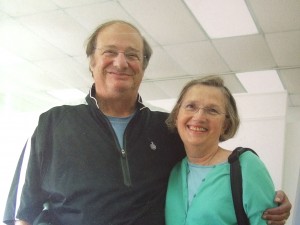

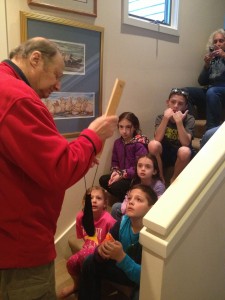
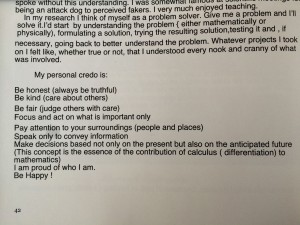
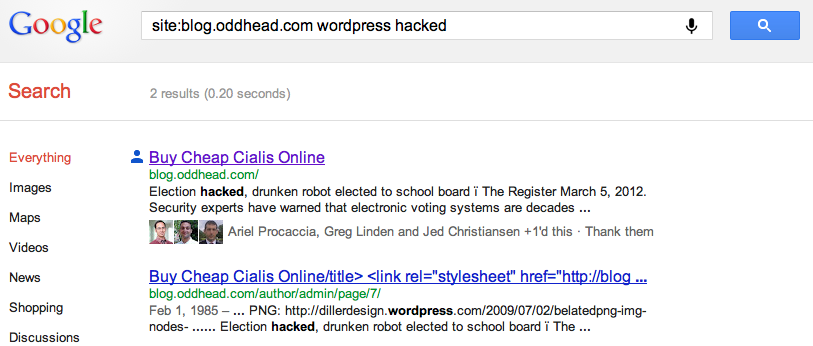
 Now that I’ve
Now that I’ve 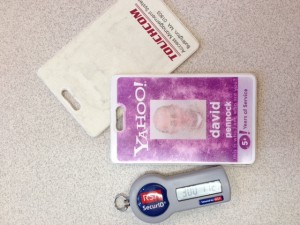 On Thursday April 26, 2012, I resigned from Yahoo! after nearly 10 without actively changing jobs. Here is the full text of the goodbye letter(s) I sent. It’s the kind of long-winded last salvo that few people actually read, and now I’m foisting it upon you, dear reader, but I can’t help myself. Writing it brought back many wonderful memories and a tinge of sadness at the end of a truly amazing work environment for me, but I found the exercise rewarding. I really appreciate the many kind words and well wishes: some were poignant and immensely gratifying. The feeling is mutual. If nothing else, throughout my career I have had the great fortune of working with amazing people who are equal parts brilliant, effective, and nice, including my bosses, peers, reports, and students.
On Thursday April 26, 2012, I resigned from Yahoo! after nearly 10 without actively changing jobs. Here is the full text of the goodbye letter(s) I sent. It’s the kind of long-winded last salvo that few people actually read, and now I’m foisting it upon you, dear reader, but I can’t help myself. Writing it brought back many wonderful memories and a tinge of sadness at the end of a truly amazing work environment for me, but I found the exercise rewarding. I really appreciate the many kind words and well wishes: some were poignant and immensely gratifying. The feeling is mutual. If nothing else, throughout my career I have had the great fortune of working with amazing people who are equal parts brilliant, effective, and nice, including my bosses, peers, reports, and students.